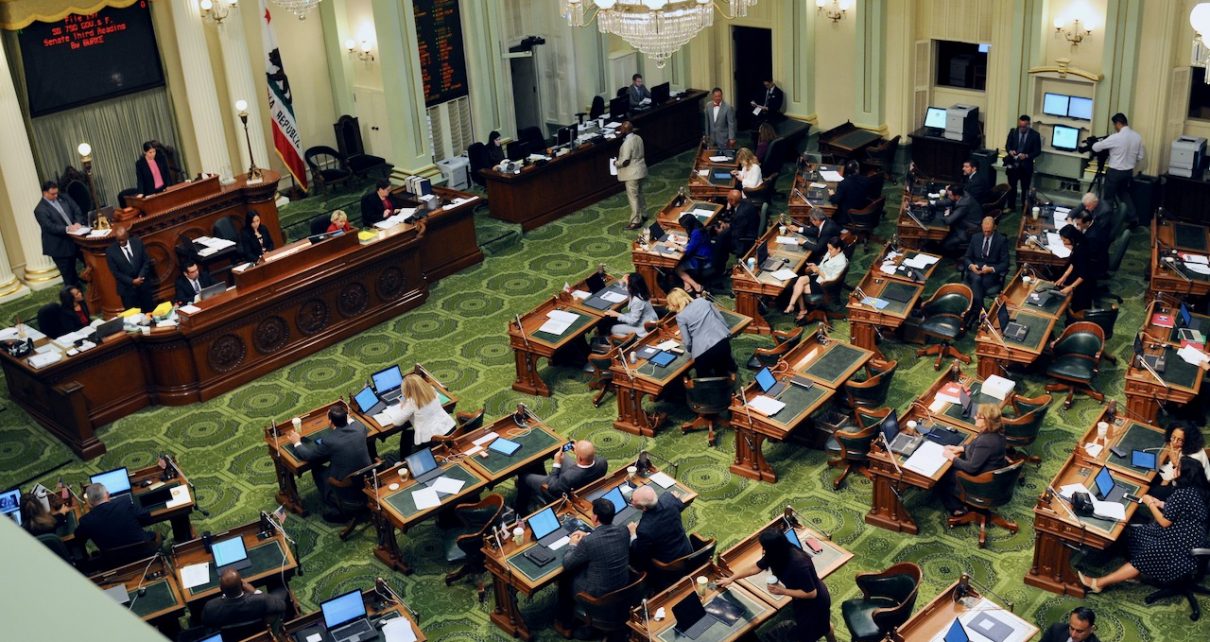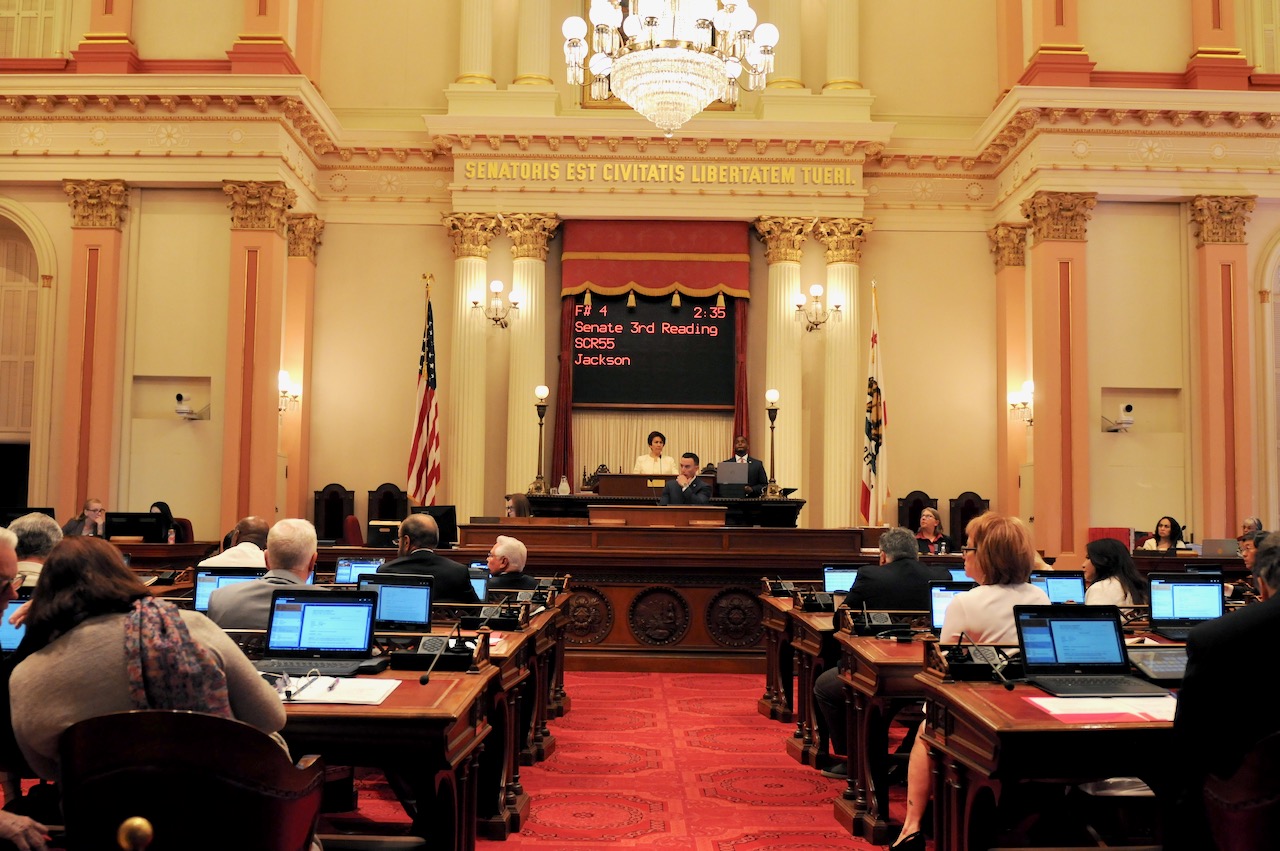
California State Assembly Chamber. (Photo: Kevin Sanders for California Globe)
Are Legislative Findings in Prop. 65 Bills Sufficient?
The bills that propose to amend Prop. 65 should also provide some rationale for their proposed amendments
By Chris Micheli, February 19, 2023 4:36 pm
In reviewing recently-introduced legislation that proposes amendments to California’s Safe Drinking Water and Toxic Enforcement Act of 1986, as enacted by the voters by Prop. 65, the same legislative finding and declaration is made in each bill. It is a simplistic statement that raises the question whether this language meets the requirement of Prop. 65.
Prop. 65 enacted an initiative statute that, in Section 1 of Prop. 65, provides the following, in part:
The people of California find that hazardous chemicals pose a serious potential threat to their health and well-being, that state government agencies have failed to provide them with adequate protection, and that these failures have been serious enough to lead investigations by federal agencies of the administration of California’s toxic protection programs.
In addition, Prop. 65, in Section 7, provides the following:
To further its purposes this initiative may be amended by statute, passed in each house by a two-thirds vote.
Prop. 65 was a statutory initiative enacted by the People and allows the Safe Drinking Water and Toxic Enforcement Act to be amended by the Legislature. It specifies that any provision of the Act may be amended by a 2/3 vote of the Legislature, so long as that amendment “furthers its purposes.”
. Recall that Article II, Section 10 of the California Constitution provides in Subdivision (c)
The Legislature may amend or repeal a referendum statute. The Legislature may amend or repeal an initiative statute by another statute that becomes effective only when approved by the electors unless the initiative statute permits amendment or repeal without the electors’ approval.
This provision only allows an initiative that was adopted by the state’s voters to be amended by the Legislature (such as Prop. 65) if the initiative permits amendment without the electorate’s approval. Prop. 65 does allow amendment by the Legislature as described above.
As a result, the Legislature may amend Prop. 65. So, when the Legislature desires to amend Prop. 65, it includes in a “plus section” (which can be seen at the end of a bill that proposes to amend the Act) a legislative finding and declaration. The following is an example of what is contained in almost every Prop. 65 amendment bill:
The Legislature finds and declares that this act furthers the purposes of the Safe Drinking Water and Toxic Enforcement Act of 1986 (Chapter 6.6 (commencing with Section 25249.5) of Division 20 of the Health and Safety Code).
The question to address is whether the language in the above example is sufficient or if there should be some explanation why the Legislature believes that Prop. 65’s stated purposes are being furthered by the proposed amendment.
Unfortunately, bills amending Prop. 65 that contain a simple statement as set forth above do not in any way explain why the Legislature actually believes the proposed amendment “furthers the purposes” of the Safe Drinking Water and Toxic Enforcement Act of 1986. Instead, the bill merely states the legislative finding and declaration without any further justification or explanation provided.
As with other bills that require legislative findings and declarations, should the bills that propose amendments to Prop. 65 include reference to any of Prop. 65’s specified purposes (there are four of them in Section 1 of the Act)?
This approach, providing a short explanation, is the approach often taken with urgency clauses and special statutes. If courts examine the urgency clause or special statute findings, there is at least a short sentence or paragraph that explains why the Legislature has determined a particular bill needs an urgency clause or why the bill qualifies as a special statute.
So, perhaps the bills that propose to amend Prop. 65 should also provide some rationale for their proposed amendments so that, if the legislation were challenged in litigation, courts would have a basis for understanding why the Legislature determined the bill made an amendment to Prop. 65 furthered its purposes. As a result, the Legislature should consider adding some explanatory language to their simple statements in Prop. 65-amendment bills going forward.
- Frequently Asked Questions about When Elected Officials Take Office - April 25, 2024
- Frequently Asked Questions About Ethics Training for Local Agencies - April 24, 2024
- Frequently Asked Questions about Privileges of Voters in California - April 23, 2024





4 thoughts on “Are Legislative Findings in Prop. 65 Bills Sufficient?”